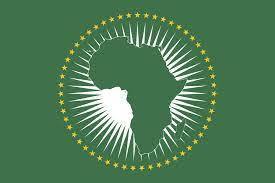ADVERTORIAL: Nigeria and the Dangers of a Monolithic Economy

“About 85% to 90% of Nigeria’s revenue comes from oil which is very dangerous. This is why none of the G7 countries of the world is an oil-dependent economy” – Dr Abbati Bako, International Political Resource Centre
We have not achieved much with oil compared to what we achieved before the discovery of oil
Since oil well was discovered in commercial quantity at Oloibiri in 1956 and the subsequent oil boom of the 1970s. Nigeria’s economy has never been the same. Our economy, which used to be largely agriculture-dependent, suddenly became oil dependent at the detriment of the agricultural and other non-oil sectors of the economy.
The discovery of oil did not only lead to the neglect of other vital sectors of the economy, instead, it also led to the expansion of the public sector, lack of financial discipline, as well as lack of transparency and accountability. Moreover, overdependence on oil means Nigeria had to always grapple with the volatility and instability in oil prices and its dire economic consequences.
Despite its huge natural endowments, Nigeria’s neglect of its vast agricultural potentials, which used to be its biggest foreign exchange earner, and failure to diversify its economy by exploiting its equally vast solid minerals potentials perfectly fits into the paradox of ‘resource curse’.
Among others, the shale oil revolution in the US, which saw the US, one of Nigeria’s biggest oil buyers eventually stopped buying our oil; the development of fuel-efficient technologies in the automobile industry as well as the discovery of oil in fellow African countries like Ghana, Kenya, Ethiopia and Tanzania have led to significant increase in oil supply to the global market and hence the resultant fall in prices.
Unlike many other oil-producing nations of the world like UAE, Qatar and Saudi Arabia who have diversified their economies, 90% of Nigeria’s foreign exchange earnings and 80% of its total revenue is oil dependent, respectively. Thus, when the turmoil in the global oil markets sets in 2015, Nigeria was totally unprepared for it and thus a recession was by no means unavoidable.
The unprecedented looting and lack of budgetary discipline of successive PDP administrations (1999 -2015) worsened the case for Nigeria’s economy.
Thus, the reality of the fact is that overdependence on oil is very dangerous to all economies of the world including Nigeria’s; a country with one of the greatest agricultural and solid minerals potentials in the world. And despite the billions of petrodollars in oil revenue Nigeria has gained in over the past 6 decades, the country has very little to show for it in terms of infrastructural development.
It’s ironic that whereas countries like UAE, Qatar and Saudi Arabia – who are no way close to Nigeria in terms of natural endowments – have successfully utilized their oil wealth in not only in positively impacting on the socioeconomic wellbeing of their people but also in diversifying their economies into other areas like trade and services as well as tourism. Conversely,Nigeria has achieved little or nothing with its vast oil wealth.
Successive administrations in Nigeria – which is the number 7 oil biggest producing country in the Organization of Petroleum Exporting Countries (OPEC), and until 2016, Africa’s biggest oil producer – have since independence only succeeded in plundering its vast oil resources, thus, earning the country a top spot in the global corruption index.
Without any fear of contradiction, one can say that the agro-based economy of the 1950s was built around groundnut, cocoa and palm oil, it left a far better legacy of infrastructural facilities than the current oil-based economy. Therefore, refocusing the economy back to agriculture is not only desirable but a sure way to promote sustainable growth and development.
If exploited, agriculture, across its value chains – production, inputs and mechanization , processing, marketing and finance, research and development – it is not only the most viable alternative to oil rather it is potentially the biggest employer of labour for our teeming youth population.
The agricultural sector, which in 2016 contributed less than 25% of Nigeria’s Gross Domestic Product, according to the CBN, has the potential to contribute up to 70% of our GDP, if huge investments are made by the government across its various value chains including, very importantly, mass sensitization campaigns. We, hereby call on Nigerians to embrace agriculture across its value chain in order to get our nation out of recession.
Compiled by Moving Image Limited













